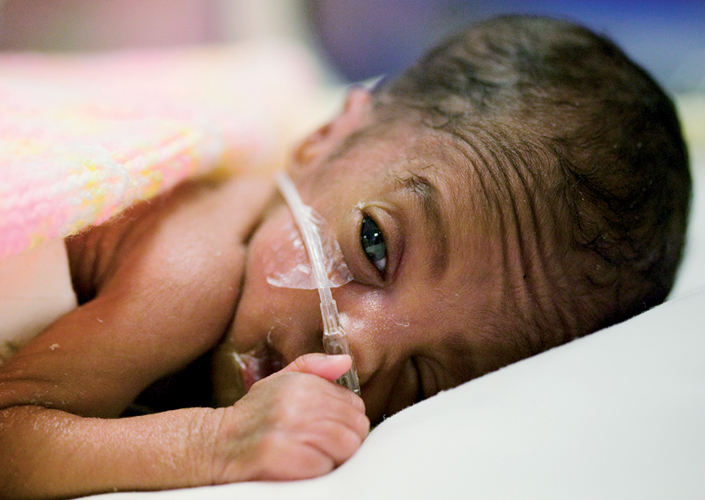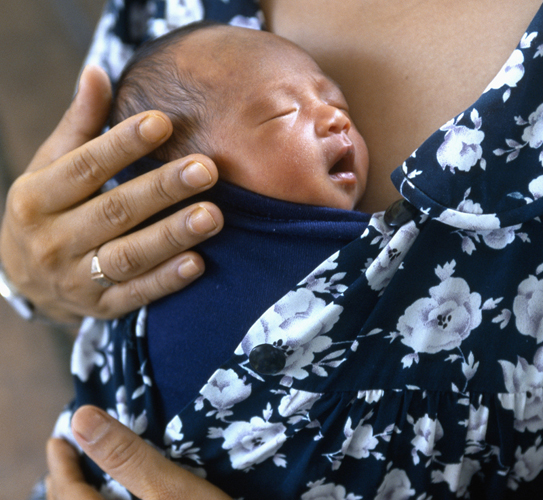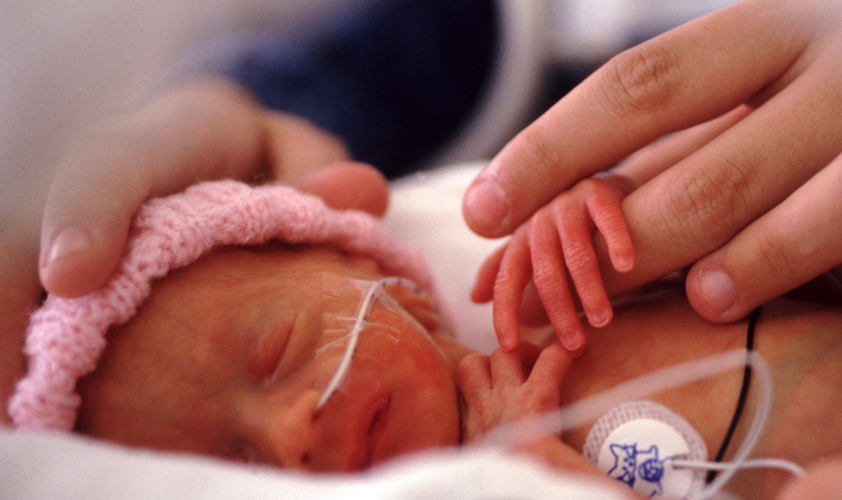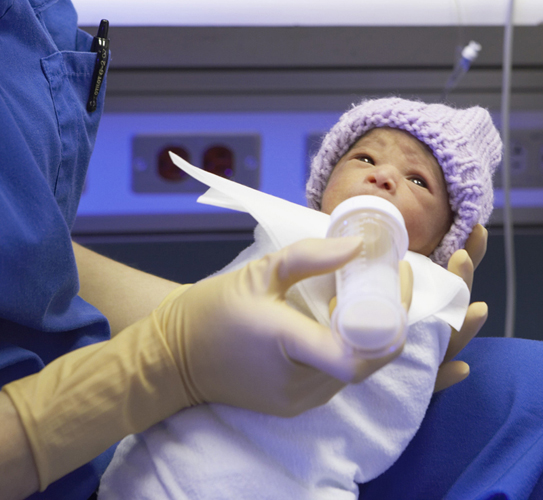Why are some babies born prematurely?
There are certain factors
that may increase an individual's likelihood of having a premature
baby. These include a previous obstetric history of prematurity of
either themselves or a mother or sister; illness during pregnancy; the
state of a mother's health prior to pregnancy; having a multiple
pregnancy; smoking; and fetal problems, such as reduced growth, which
may be due to lifestyle factors such as smoking and other fetal
disorders. Most premature babies are placed in a neonatal intensive care unit (NICU), where they will receive special medical care and attention until they are well enough to go home.
Caring for premature babies:
A baby born before 37
weeks of pregnancy may need additional support with breathing and
temperature control in a neonatal intensive care unit.

How to cope Staying focused while your baby is in the hospital
If your baby has
to spend a substantial amount of time in a NICU, it can be very hard to
cope emotionally. There are steps you can take to help you through this
difficult time.
Spend as much time as possible with your baby in the unit and get involved in his care whenever possible.
If
your baby's stay is prolonged, try not to feel guilty about spending
time at home away from him. Instead, use this time to rest and reserve
your energy for your baby.
Keep reminding yourself that your baby is receiving the best possible care.
Bonding with your special care baby
Having a baby in a neonatal
intensive care unit can be an extremely anxious time and, apart from his
physical development, you may be concerned about how you will bond with
your baby. However, the staff will encourage you to be as involved as
possible in your baby's care and will give you plenty of chance to have
contact. Touching, cuddling, and talking to your baby can be a real
comfort for both you and your baby. The need to touch and be touched is a
primal instinct and has been shown to play a significant role in the
development of your baby. Research shows that babies gain weight more
quickly, cry less, breast-feed more successfully, and are discharged
earlier when continued close contact is maintained between the baby and
parents.
Holding your baby close:
Once your baby is big enough to be removed from an incubator,
holding him close to your body is incredibly beneficial for both of you,
providing reassurance and warmth.

How long will my baby stay in the hospital? Your baby's stay in the neonatal care unit
How long each
baby stays in the NICU will depend on why he was there: some babies just
need a few hours' observation; other babies need to stay until the time
they would have been full term in the womb. Certain criteria govern
when babies return home:
When they are able to feed properly with either breast or formula milk.
When they have gained weight and weigh a minimum of 5lb (2.2 kg).
When they can control their own body temperature.
NOTE
Amazing advances in recent years in the care of premature babies has ensured the survival of some of the tiniest babies
Neonatal intensive care unit Caring for your premature baby
Some babies need special
care when they are born. A neonatal intensive care unit (NICU) is a
special ward in a hospital where these babies go if they need more care.
There are specially trained nurses and doctors (neonatologists) in the
unit to care for your baby. If you know that your baby will need to go
to a NICU while you are still pregnant, you can ask for a tour of the
unit and to meet the staff nurses and doctors. If your baby is very ill,
he may need to move to a neonatal intensive care unit.
| Q: |
Why do some babies need special care?
|
| A: |
Sometimes a baby needs special care because he has been born
early (preterm) and may need help to breathe and stay warm. Babies who
are small for their dates may also require special care. Other babies
may have an infection, be jaundiced, or have a congenital abnormality
and therefore require special care.
|
| Q: |
What will happen in the NICU?
|
| A: |
Your baby may be put in an incubator with monitors attached.
This controls the temperature and keeps your baby warm. If your baby
needs help with breathing, he will also receive oxygen through a special
ventilator in the incubator. Some of the equipment looks very
frightening, but the staff will be happy to explain what is going on, as
they are eager for you to be involved in your baby's care; they can
also help you to breast-feed or pump milk. If your baby is admitted
unexpectedly, you will be given a photo of him, since you may be
recovering from a cesarean, making it difficult for you to visit your
baby during the first day. If this is the case, ask the nursing staff to
take you to your baby as soon as you are able. NICU staff love having
the baby's family to visit, although they may have strict rules
regarding visiting—so ask what the policies are in your unit.
|
Contact with your baby:
Even while your baby is in
an incubator, there are plenty of ways to stimulate him and
communicate. Being close to your baby will help you cope too.

Loving care:
You will be encouraged to
care for your baby in the neonatal unit, and babies needing special care
have been shown to thrive from the loving touch and attention of their
parents.
